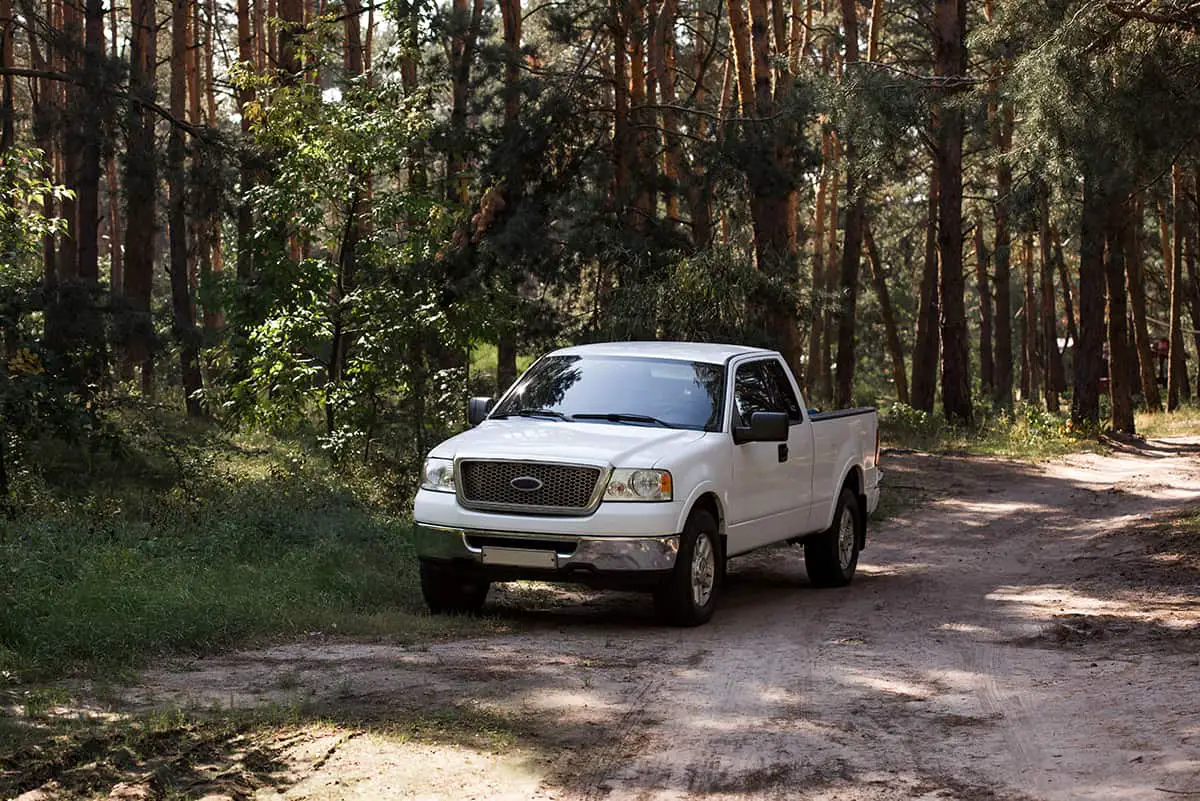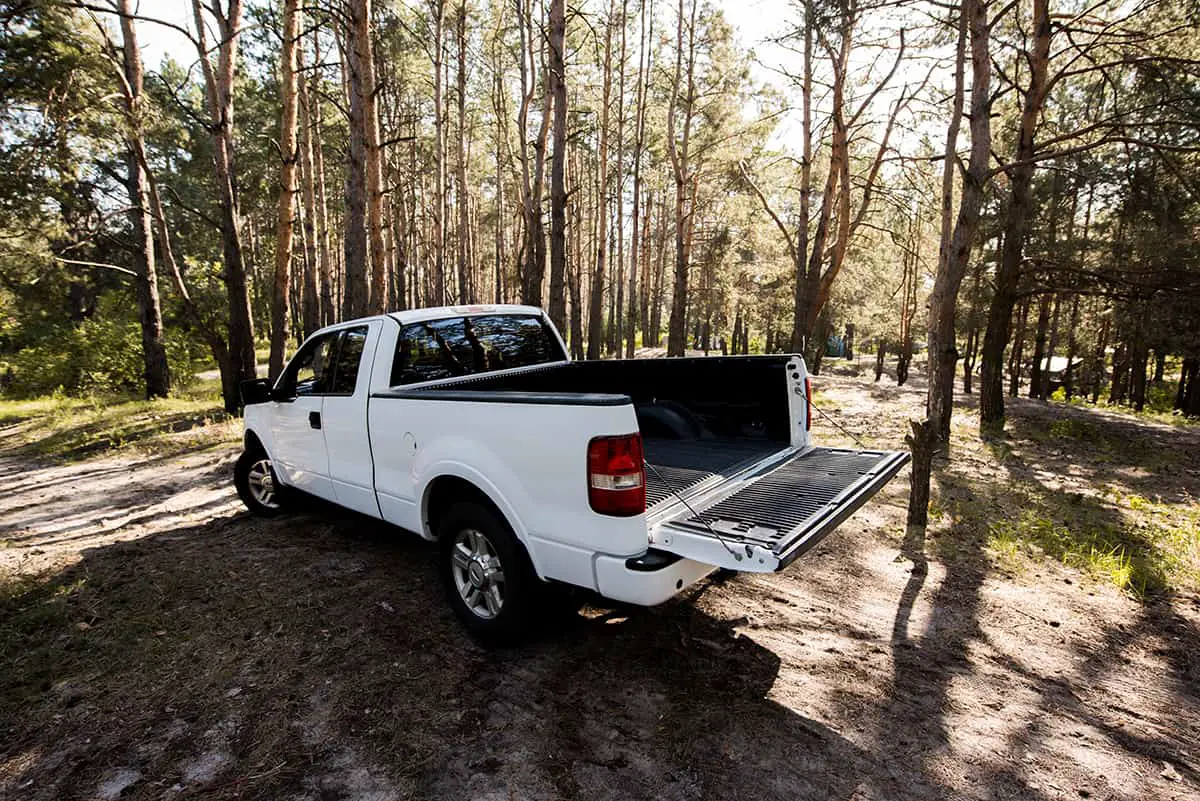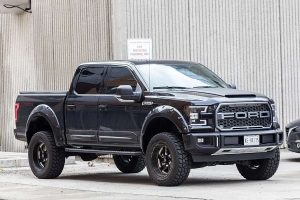Before deciding which truck to get, you should be aware of its physical measurements. That way, you’ll know whether or not it will fit in your garage, driveway, or underground parking spots in your most frequently visited destinations.
The average width of 19 different trucks turned out to be 78.6 inches.
However, the average width of a truck is only a tiny part of whether or not a truck is right for you in the first place. In this guide, I’ll go through the measurement specs of various truck models, why a truck’s width matters, and I’ll cover the various truck types based on weight class.
How Wide Is the Average Truck?
With over 30 car brands available in America, figuring out the average of a specific type—i.e., a pickup truck—can be a challenge. In addition, the average width, length, or height of a car doesn’t reveal much about its compatibility with your parking situation or whether or not it’s the right car for you. However, knowing how wide a car gives you a basic idea of whether it can actually fit on your driveway or inside your 2-car garage.
The following table will describe the measurement specs of popular pickup truck models available today.
| Pickup Truck Model | Width | Length | Height |
| Chevrolet Colorado | 74.3 in. | 212.7 in. | 70.4 in. |
| Chevrolet Silverado 1500 | 81.1 in. | 229.7 in. | 75.6 in. |
| Ford F150 | 95.7 in. | 231.7 in. | 75.6 in. |
| Ford F250 Super Duty | 80.0 in. | 231.8 in. | 78.9 in. |
| Ford Maverick | 83.5 in. | 199.7 in. | 68.7 in. |
| Ford Ranger | 85.8 in. | 210.7 | 70.7 in. |
| GMC Canyon | 74.3 in. | 212.4 in. | 70.4 in. |
| GMC Hummer EV | 93.7 in. | 216.8 in. | 79.1 in. |
| GMC Sierra 2500HD | 81.9 in. | 250.1 in. | 78.8 in. |
| Honda Ridgeline | 78.6 in. | 210.2 in. | 70.8 in. |
| Hyundai Santa Cruz | 75.0 in. | 195.7 in. | 75.0 in. |
| Jeep Gladiator | 73.8 in. | 218.0 in. | 75.0 in. |
| Nissan Frontier | 73.0 in. | 210.2 in. | 71.7 in. |
| Nissan Titan | 79.5 in. | 228.2 in. | 75.1 in. |
| Ram 1500 | 82.1 in. | 232.9 in. | 77.5 in. |
| Ram 2500 | 79.4 in. | 232.0 in. | 78.0 in. |
| Rivian R1T | 81.8 in. | 217.1 in. | 78.2 in. |
| Toyota Tacoma | 74.4 in. | 212.3 in. | 70.6 in. |
| Toyota Tundra | 68.4 in. | 233.6 in. | 78.0 in. |
| Average Dimensions | 78.6 in. | 220.7 in. | 74.6 in. |
After comparing 19 different pickup truck models from 10 different brands, the average width turned out to be 78.6 inches. As for the average length and height, they would be 220.7 inches and 74.6 inches, respectively.
Does Truck Width Really Matter?
When shopping for any car, you should pay close attention to its exterior dimensions. That way, you will have a pretty good idea of how it compares to the amount of garage or driveway space you have at home. In addition, you should also pay careful attention to whether the vehicle will fit in parallel parking spaces or in parkades at your most frequently visited establishments.
But when it comes to pickup trucks, the width is only a minor consideration. The more crucial points to bear in mind when choosing a car, especially a pickup truck, are as follows:
Towing capacity—How heavy of a trailer can the pickup truck tow?
Mileage—How many miles per gallon does it get in the city and on highways?
Passenger capacity—How many people can it seat?
Bed length—How much stuff can you toss in the bed?
Drive wheel—Will you be driving in slippery conditions?
The following table will describe these specifications and features based on each of the 19 trucks’ stock trims.
| Pickup Truck Model | Towing Capacity | Mileage (City/Highway) | Passenger Capacity | Bed Length | Drive Wheel |
| Chevrolet Colorado | 5,500 lbs. | 19/25 mpg | 4 | 62 in. | RWD |
| Chevrolet Silverado 1500 | 9,200 lbs. | 23/31 mpg | 4 | 69 in. | RWD |
| Ford F150 | 14,000 lbs. | 19/24 mpg | 4 | 66 in. | RWD |
| Ford F250 Super Duty | 12,000 lbs. | 15/16 mpg | 3 | 80 in. | RWD |
| Ford Maverick | 4,000 lbs. | 42/33 mpg | 5 | 54 in. | FWD |
| Ford Ranger | 7,500 lbs. | 21/26 mpg | 5 | 60 in. | RWD |
| GMC Canyon | 7,700 lbs. | 19/28 mpg | 4 | 74 in. | RWD |
| GMC Hummer EV | 7,500 lbs. | 47 MPGe | 5 | 60 in. | AWD |
| GMC Sierra 2500HD | 18,500 lbs. | -/17 mpg | 2 | 81 in. | RWD |
| Honda Ridgeline | 5,000 lbs. | 18/24 mpg | 5 | 64 in. | RWD |
| Hyundai Santa Cruz | 5,000 lbs. | 21/26 mpg | 5 | 52 in. | FWD |
| Jeep Gladiator | 7,650 lbs. | 16/23 mpg | 5 | 60 in. | AWD |
| Nissan Frontier | 6,720 lbs. | 18/24 mpg | 4 | 75 in. | RWD |
| Nissan Titan | 9,320 lbs. | 16/21 mpg | 5 | 67 in. | RWD |
| Ram 1500 | 12,750 lbs. | 20/26 mpg | 6 | 68 in. | RWD |
| Ram 2500 | 20,000 lbs. | 12/18 mpg | 6 | 77 in. | RWD |
| Rivian R1T | 11,000 lbs. | 74/66 MPGe | 5 | 54 in. | AWD |
| Toyota Tacoma | 6,800 lbs. | 19/24 mpg | 4 | 60 in. | RWD |
| Toyota Tundra | 12,000 lbs. | 20/24 mpg | 5 | 78 in. | RWD |
Types of Pickup Trucks by Weight Class

If you’re shopping for a pickup truck in America, you’ll have four weight classes to choose from—compact, mid-size, full-size, and heavy-duty.
Compact Pickup Trucks
Compact pickup trucks are the smallest of them all. They drive more similarly to sedans than they do pickup trucks, making them more car-owner-friendly than wider, longer pickup truck varieties. You can typically distinguish a compact truck from the other types by its unibody—i.e., the cabin and bed are a part of the same frame.
Examples: Honda Ridgeline, GMC Canyon, Ford Maverick
Mid-Size Pickup Trucks
From an aesthetics standpoint, mid-sized pickup trucks are just tinier versions of their full-sized counterparts. In comparison to compact trucks, mid-sized models have larger beds and roomier interiors, allowing them to fulfill various automotive duties, such as transporting large cargo and towing trailers.
Examples: Toyota Tacoma, Ford Ranger, Chevrolet Colorado
Full-Size Pickup Trucks
Simply put, full-size pickup trucks have larger framers, more spacious beds, and beefier engines. You can typically tell whether a model is classified as a full-size pickup truck by its towing capacity (minimum of 10,000 pounds). Their reduced mileage and higher price tags are also telltale signs.
Examples: Ford F150, GMC Sierra 2500HD, Ram 1500
Heavy-Duty Pickup Trucks
In terms of size, heavy-duty pickup and full-size pickup trucks don’t differ much. In addition to its 10,000-pound minimum towing capacity, heavy-duty pickup trucks are designed for rugged tasks, including farm work and off-roading.
Examples: Ford F250, Ram 2500, GMC Sierra 2500HD






